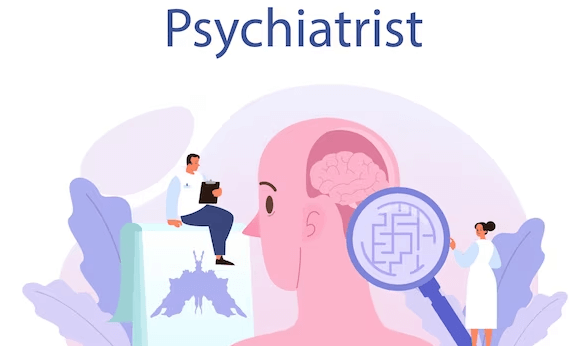Introduction
Becoming a psychiatrist is a rewarding and challenging journey that requires dedication, education, and a commitment to improving mental health. If you’re passionate about the field of psychiatry and are considering a career as a psychiatrist, this article is your comprehensive guide. We will outline the steps to becoming a psychiatrist, the educational path, and address frequently asked questions to help you embark on this fulfilling profession.
The Role of a Psychiatrist
Steps to Becoming a Psychiatrist are medical doctors who specialize in the diagnosis, treatment, and prevention of mental illnesses. They play a vital role in providing care and support to individuals struggling with a wide range of mental health conditions, from anxiety and depression to severe disorders like schizophrenia.
Steps to Becoming a Psychiatrist
Steps to Becoming a Psychiatrist is a long and rigorous process that can be broken down into several key steps:
1. Obtain a Bachelor’s Degree: Begin your journey by completing a bachelor’s degree in a relevant field such as psychology, biology, or pre-medicine. Focus on maintaining a high GPA and participating in extracurricular activities that demonstrate your commitment to the field of medicine.
2. Attend Medical School: To become a psychiatrist, you must earn a Doctor of Medicine (M.D.) or Doctor of Osteopathic Medicine (D.O.) degree. Medical school typically takes four years and includes classroom instruction, clinical rotations, and practical experience.
3. Complete Residency Training: After medical school, you’ll need to complete a psychiatry residency program, which typically lasts four years. During your residency, you’ll gain hands-on experience in various psychiatric settings, treating patients and refining your skills.
4. Get Licensed: To practice as a psychiatrist, you must obtain a state medical license. Licensing requirements vary by state but generally include passing the United States Medical Licensing Examination (USMLE) or the Comprehensive Osteopathic Medical Licensing Examination (COMLEX-USA).
5. Pursue Certification and Specialization: Many psychiatrists choose to pursue board certification in psychiatry through organizations like the American Board of Psychiatry and Neurology (ABPN). You can also opt for subspecialization in areas such as child and adolescent psychiatry, addiction psychiatry, or forensic psychiatry.
Frequently Asked Questions (FAQs)
Let’s address some common questions about the steps to becoming a psychiatrist:
1. How long does it take to become a psychiatrist? The path to becoming a psychiatrist typically takes about 12 years, including four years of undergraduate education, four years of medical school, and four years of residency.
2. Do I need to complete a psychiatric residency to become a psychiatrist? Yes, a psychiatry residency is a mandatory part of the training to become a psychiatrist. It provides practical experience and specialized training in the field.
3. What is the difference between an M.D. and a D.O. degree for psychiatrists? Both M.D. and D.O. degrees lead to a career as a psychiatrist. The main difference is the philosophy of the medical schools and the focus on osteopathic principles in D.O. programs.
4. Can I specialize in a particular area of psychiatry, and when do I choose this specialization? Yes, you can choose to specialize in a subspecialty of psychiatry after completing your general psychiatry residency. Specializations are typically chosen during your final year of residency.
5. Are there any additional certifications or licenses required to prescribe medication as a psychiatrist? In addition to your state medical license, you may need a Drug Enforcement Administration (DEA) registration to prescribe controlled substances. These requirements may vary by state.
Read also https://bluesushisakegrill.net/world-news/
In conclusion, becoming a psychiatrist is a demanding but highly rewarding journey. It involves obtaining a bachelor’s degree, attending medical school, completing a psychiatry residency, and obtaining the necessary licenses and certifications. This career path allows you to make a significant impact on the lives of individuals struggling with mental health issues and contribute to the betterment of society’s overall mental well-being.

